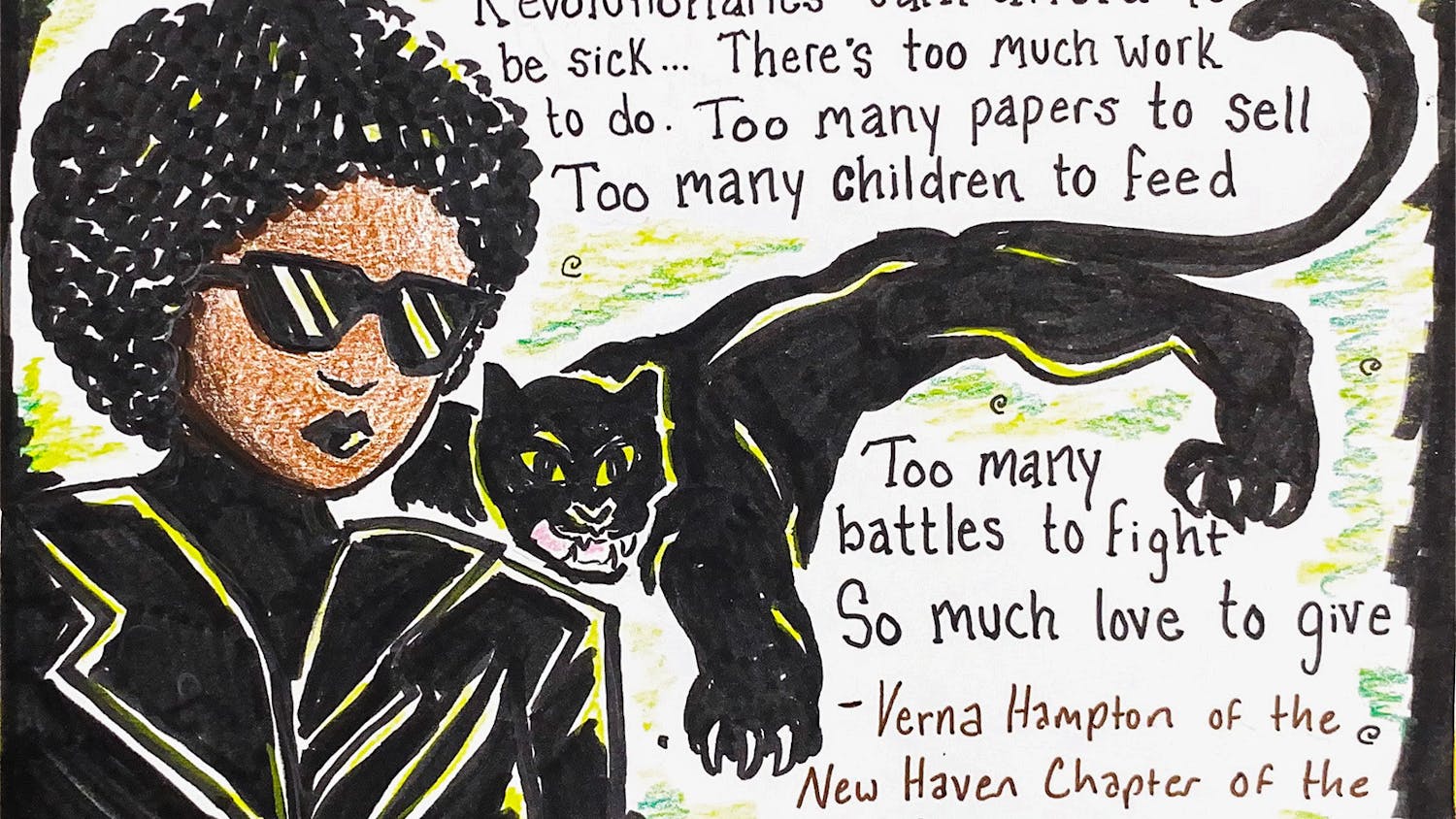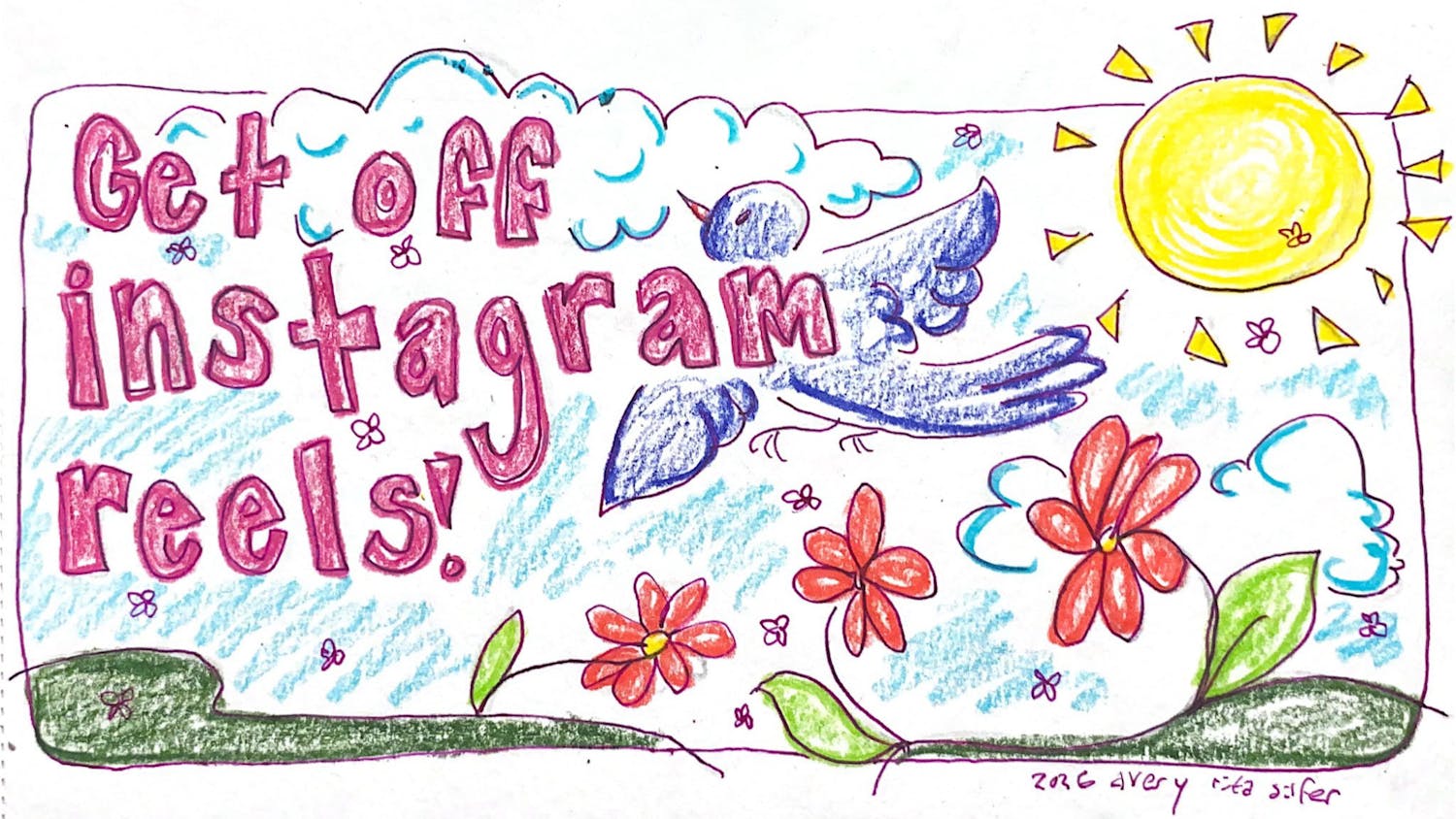In a world where LGBTQ+ characters in mainstream media have been historically resigned to minor storylines and “bury your gays” tropes, the Way OUT West Film Festival recently provided a haven for original, queer content.
Festival manager Jake McCook explained it as “a festival for and by other LGBTQ+ filmmakers” because these creators don’t often get their content picked up by other festivals or streaming platforms.
This year, the festival ran completely virtually by staggering its lineup of 100+ feature length and short films into different blocks from Oct. 9-18. While this staple of the Albuquerque film scene couldn’t be viewed in person, its virtual presence allowed the festival to expand beyond the theater to all four corners of the state.
From a teenage lesbian rom-com involving the apparition of a dead aunt to a moving documentary about the first concert performed by an all-trans chorus, the festival’s lineup spanned across sexual orientations, genders, ages and countries of origin.
Adrien Lawyer, the executive director and co-founder of the Transgender Resource Center of New Mexico, said an issue festival audiences often have is that they “don’t always gravitate towards things that challenge (them),” but Way OUT West provided the opportunity to see a wide array of films outside of their comfort zone.
Speaking to the broad variety of content slated, McCook said the festival programmers worked incredibly hard to accurately reflect the vast diversity of the community.
“Any time someone sees a representation of themselves on screen, it’s very powerful,” McCook said.
Lawyer said representation makes an especially large impact on today’s LGBTQ+ youth.
“Without representation, kids don’t feel empowered, seen or validated,” Lawyer said. “They don’t feel like they could go out and have different stories.”
Lawyer said it’s better for the audience when films are created by people who are telling their own authentic stories, because audiences “get a better inroad to having compassion and to learn and be exposed than when people from dominant groups imagine people’s stories,” as is often the case with films and TV shows produced by big-budget mainstream media.
McCook took care to explain the significance of the festival lineup by describing all of the films as having “beauty, quality and uniqueness” and noted that many films showcased underrepresented members of the LGBTQ+ community.
“The best way to change hearts and minds is through storytelling,” McCook said.
Get content from The Daily Lobo delivered to your inbox
Lawyer, whose organization has been sponsoring the festival for years, said that he wouldn’t have even known these films existed without the festival and that they’ve really “changed (his) world.”
This year, one of the grand sponsors of the festival was the University of New Mexico’s Truman Health Services, which provides specialty care for HIV/AIDs treatment and prevention.
The clinic specifically sponsored the documentary “Cured,” which tells the story of a rag-tag group of activists and psychiatrists in 1973 who succeeded in getting the American Psychiatric Association to remove “homosexuality” as a mental illness from the Diagnostic and Statistical Manual.
A documentary of particular interest to the Albuquerque community was “The Whistle,” which recounts how lesbians living in Albuquerque in the 1970s and 80s came up with a whistle that let them safely identify themselves to other lesbians.
In a Q&A with members of the cast and crew, cast member Rebecca Champion said the film “opened my eyes to how important our lives were back then and the history that has unfolded.”
Lawyer explained that these kinds of documentaries are imperative to moving the country forward because educational systems in the United States often fall short in teaching LGBTQ+ history and the history of other minority groups.
“So much history is swept under the rug and not taught to our kids … We can’t be untruthful about the history of our country to (our) children and expect a vital democracy,” Lawyer said.
To McCook and Lawyer, it was important to emphasize that the impact of the festival lasts far longer than when the final credits roll across the screen.
“This doesn’t have to be the last time we talk about this subject or these people,” McCook said.
Shelby Kleinhans is a freelance photographer and reporter at the Daily Lobo. She can be contacted at culture@dailylobo.com or on Twitter @BirdsNotReal99






